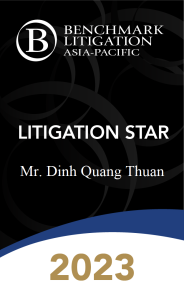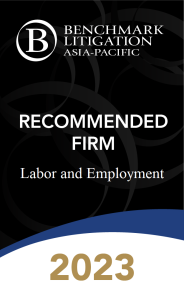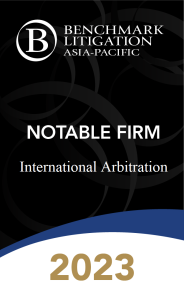GV Lawyers would like to introduce our valued readers an article by Ms. Pham Thanh Mai titled “How Vietnam compensation rules ruin the rights of consumers in e-commerce transactions” published on In-House Community site on 29 March 2023.
***
1. Background and context of e-commerce in Vietnam
Online transactions are usually trivial, and dispute settlement, e.g., through mediation, arbitration, civil court, etc., costs time and money. This would prompt consumers to let it go, or spread warnings over the web as widely as possible, expecting this to serve as a deterrence to dishonest vendors. After all, who would give up a whole working day just to seek justice for, let’s say, a damage worth VND30,000 (USD1,2)?
But supposing a thousand consumers, instead of just one, become victims, the dishonest vendor will in this case acquire an illicit gain of VND30,000,000 (~USD1,200) without moving a finger. Bearing in mind that the revenue generated by the Vietnamese retailer e-commerce was predicted to reach USD16.4 billion in 2022[1], and will grow exponentially in the following years, such illicit gain would increase tremendously if the customers persist in reacting passively.
And this is where consumer protection laws are supposed to come forward.
2. A glance at claimable damages under Vietnamese consumer protection laws
First of all, consumer protection laws come forward with damage compensation regimes.
From the standpoint of Vietnamese legislatures, compensation for damages resulting from violation of consumers’ interests is based on both contractual and non-contractual obligations. The relationship between consumers and vendors is contractual and reciprocal at the very essence. Vendors accordingly must ensure that the goods are delivered in the quantities and quality as promised to the consumers under a sale of goods contract. Where the vendors fail to do so, they are deemed to have breached the contract and thus are obligated to compensate for damages as per contract and perform remedial measures to the consumers, the aggrieved party.
In addition to contractual compensation, non-contractual one, or tortious liability, is to be taken into account when the vendors’ failure to ensure the quality of goods causes actual damage to the consumers as stated in Article 608 of the Civil Code 2015. Tortious liability arises when three elements are met: tort, actual damage, and causal link between the tort and the actual damage[2]. It is noteworthy that, unlike under the contractual compensation regime, the fault factor is taken into consideration when it comes to calculating compensable damages, not to determining whether the tortious liability arises. Put in simple words, the vendors cannot argue that they are not liable to their customers for the damage caused by defective goods because it is not in their intention to cause damage or that damage-causing is beyond their awareness. The involvement of tort liabilities provides a wider range of compensation claims by consumers.
Article 13 of the 2015 Civil Code sets out a cornerstone for civil compensation regime, in which those whose civil rights are violated are eligible for compensation for total damage. In line therewith, in section 1, Article 585 of the same Code, we will find the notion of damage compensated in full which means, according to Resolution 02/2022 of the Council of Judges of the People’s Supreme Court (“Resolution 02/2022“), all actual damage that must be compensated[3]. Damages caused to consumers can relate to their assets, health, and life, each of which the laws provide different calculation methods with detailed formulations[4]. However, the relevant wording in the 2015 Civil Code and Resolution 02/2022 on “all actual damage” seem to exclude consequential damage, or also commonly known as indirect damage.
Since no definition of indirect damage is provided in the Vietnamese laws, it may be useful to refer to a classic precedent, i.e., the Hadley v Baxendale (1854) Case where the court found that breaches of contract are recoverable if they either “may fairly and reasonably be considered either arising naturally, i.e., according to the usual course of things, from such breach of contract itself”, or “may reasonably be supposed to have been in the contemplation of both parties, at the time they made the contract, as the probable result of the breach of it”. As you may see, the former quotation is a general description of direct damage while the latter one is of indirect damage.[5]
Let’s explore a scenario where a consumer buys a shirt from a vendor, having thereby entered into a verbal contract, to speak in law words. The consumer quickly becomes disappointed at the new shirt because its quality is poorer than the one described in the vendor’s advertisement. The consumer thereby requires compensation from the vendor for the shirt, which is worth VND300,000, because the shirt fails to “match the technical standards or norms, quality, quantity, features, usage, pricing or other contents that organizations or individuals trading goods and/or services already declared, posted, advertised or committed” pursuant to section 6 Article 8 of the 2010 Law on Protection Of Consumers’ Rights[6] [7]. But the vendor rejects the consumer’s claim and argues that he is innocent. The consumer then decides to exercise her rights under section 7 Article 8 of the said Law[8], by submitting the dispute to a competent court to have her own interests recognized and vindicated.
In the best-case scenario, after lengthy civil proceedings, the consumer is declared entitled to claim VND300,000 which is the only quantum ramifactus she can prove in court. Such a damage compensation is purely contract-based because she has not suffered any other damages related to her health, asset, or life from that poor-quality shirt, and hence no legal grounds for raising tortious liability, and the court excludes indirect damages.
3. What to expect?
Evidently, VND300,000 can barely cover the lawsuit costs, including the time and resources the consumer has to spend on preparing the litigation dossier, participating in a mediation with the vendor and the judge, transportation, lawyer fees, and other types of sundry expenses, which altogether may be regarded as indirect damage. But, as the laws stand, indirect damage is not accounted as “all actual damage”, such expenses cannot be acknowledged by the court, unless the consumer and the vendor accept by mutual consent, in the contract or elsewhere, that the case-losing party would bear such costs. Rejection of indirect damage may, at least in cases similar to the aforementioned, turn out to be unfair to consumers who very often are the vulnerable party due to lack of proper information[9].
The disadvantage of consumers as opposed to vendors acted as a motivation for adoption of the Law on Protection of Consumers’ Rights, and is still raised as a reason for supporting the new version of the said Law during recent debates at the National Assembly[10]. Supposing the Vietnamese legislators truly acknowledge such weaker legal position of the consumers, they should, in our opinion, also let the consequential damages be borne by vendors in case their contract breach is declared to be the origin of the damage caused to the consumers.
Take the lawyer fees as an example. The prevailing Vietnamese laws generally prescribe that refunding of the case-winning party’s lawyer fees by the case-losing party is only accepted if as per parties’ mutual consent,[11] except otherwise prescribed by law, e.g., in the laws on intellectual property.[12] In both doctrine and practice, Vietnamese scholars and legal practitioners are divided on this lawyer fees topic as well. The judicial practice delivers various yet contradictory opinions in this regard: while the courts insist that lawyer fees must be excluded from compensation claims because the absence of lawyers does not obstruct civil proceedings and therefore lawyer fees are “add-on” expenses in essence[13], arbitration, on the other hand, tends to recognize lawyer fees as a reasonable cost to a certain extent and approve their reimbursement if requested.
We believe that reimbursement of lawyer fees should be extended to consumer protection. As consumers are in a disadvantaged position right from outset as compared to vendors, and particularly to enterprise-vendors, it would be fair to assume that they are in need of legal aid from professional and experienced counsels. Given that professional legal services are relatively high compared to the average income in Vietnam (roughly VND 7,500,000 (~USD 275) per month in 2022)[14], consumers with average or low income would find lawyer fees to be out of reach. They should be relieved of such a burden for the sake of due justice process for everyone.
Back to the Shirt Case, the consumer would be entitled to not only compensation for the value of the defective shirt of VND300,000 but also refunding of the lawyer fees incurred during the court proceedings. As a result, the dishonest vendor will be liable for disbursing much more than VND 300,000 for his defaulting on his responsibility. To a certain extent, such sanctioning would serve as a warning to the other vendors and deter them from such illicit business practices. On the macro level, it encourages transparent and fair consumption, reduces petty dispute cases and reduces the workload of the administrative authorities, inspectorates, and dispute settlement bodies.
Legislators nevertheless should not fully give vendors the same right as consumers in terms of indirect damage as discussed above, and set a limit on which type of indirect damage is claimable by vendors. This may seem unfair from the vendors’ side at first, but if vendors are fully granted such right, it will discourage consumers from seeking indemnity because of their limited resources, and the legislation then fails to redress the asymmetrical legal positions of vendors and consumers. Instead, vendors may claim non-contractual compensation for the consumers’ defamatory statements, and other fees if stated in the sale contract. At the end of the day, it is crucial to balance interests and rights between consumers and vendors, so that protection of consumers’ rights is not at the expense of the vendors’ legitimate rights and interests.
As the main theme of the Vietnamese Consumer Day this year is “Transparent Information – Safe Consumption”, making transparency in the provision of information to consumers the main target,[15] the legislation for protection of consumers’ rights should develop in the way of motivating the vendors to fulfill their statutory obligations and deter any intention of wrongdoings. When writing this article, we do not expect to see a mechanism that enables a consumer to return a newly-bought hat simply because the hat does not match the color of his/her hair[16]; we are just advocating for a set of measures that grant proper protection to e-commerce consumers and be more constructive and efficient than spreading complaints over the media and the web[17].
BIBLIOGRAPHY
- Legislation
- Civil Code No. 91/2015/QH13, adopted by the National Assembly on 24 November 2015 (“Civil Code 2015”).
- Civil Procedure Code No. 92/2015/QH13, adopted by the National Assembly on 25 November 2015 (“Civil Procedure Code 2015”).
- Law No. 59/2010/QH12 on Protection of Consumers’ Rights, adopted by the National Assembly on 17 November 2010 (“Law on Protection of Consumers’ Rights”).
- Law No. 50/2005/QH11 on Intellectual Property, adopted by the National Assembly on 29 November 2005, adjusted and amended by Law No. 36/2009/QH1, Law No. 42/2019/QH14, and Law No. 07/2022/QH15, adopted by the National Assembly on 16 September 2009, 14 June 2019, and 16 June 2022, respectively (“Law on Intellectual Property”).
- Resolution No. 02/2022/NQ-HDTP on Guidelines For Application Of Some Provisions Of The Civil Code On Tort Liability, issued by the Council Of Judges of the Supreme People’s Court on 06 September 2022 (“Resolution 02/2022”).
- Journals and articles
- Marques C, ‘Relations Between International Law and Consumer Law in the Globalized World: Challenges and Prospects’, in Wei D and Marques C (eds), Consumer Law and Socioeconomic Development (Springer International Publishing 2017)
- Phan Thuong, ‘Đòi bồi hoàn tiền thuê luật sư, được không?’, Phap Luat (Ho Chi Minh City, 29 July 2011) <https://plo.vn/doi-boi-hoan-tien-thue-luat-su-duoc-khong-post85035.html> accessed on 20 March 2023.
- Pham An, Duc Hoang, and Ha Quang Minh, ‘Bảo vệ người tiêu dùng như thế nào?’ Cong An Nhan Dan (14 October 2022) https://cand.com.vn/Chuyen-de/bao-ve-nguoi-tieu-dung-nhu-the-nao–i670401/ accessed on 20 March 2023.
- Thao Nguyen, Chien Thang, ‘Quy định những vấn đề mới, đặc thù để bảo vệ vị trí yếu thế của người tiêu dùng’ Quan Doi Nhan Dan (Ha Noi, 25 October 2022) <https://ift.tt/K0ekA78> accessed on 20 March 2023.
- Reports and others
- Hadley v Baxendale (1854) 9 Ex 341 (23 February 1854).
- General Statistics Office, ‘Infographic social-economic situation 4th quarter and 2022’ (29 December 2022) <https://ift.tt/j1xL0ZS> accessed on 20 March 2023.
- Vietnam E-commerce and Digital Economy Agency of Ministry of Industry and Trade, ‘Report of E-commerce in Vietnam 2022’ (Publishing House for Industry and Trade 2022).
[1] Vietnam E-commerce and Digital Economy Agency of Ministry of Industry and Trade, ‘Report of E-commerce in Vietnam 2022’ (Publishing House for Industry and Trade 2022).
[2] Article 2 of Resolution 02/2022.
[3] Item (b) section 1 Resolution 02/2022.
[4] Articles 580, 589, and 590 of the 2015 Civil Code.
[5] The recoverable indirect loss should not be too remote as well, but due to the scope of our article, we could not discuss this matter this time.
[6] Please note that, as of the date of our article, a new version of the Law on Protection Of Consumers’ Rights has been under discussion by the National Assembly and expectedly to be adopted soon.
[7] “to require compensation if the provided goods or services do not match technical standards or norms, quality, quantity, features, usage, pricing or other contents that organizations or individuals trading goods and/or services already declared, posted, advertised or committed”.
[8] “7. Being entitled to complain, denounce and take a lawsuit or propose social organization to take a lawsuit in order to protect their rights under the provisions of this Law and other provisions of law involved.”
[9] Claudia Lima Marques, ‘Relations Between International Law and Consumer Law in the Globalized World: Challenges and Prospects’, in Dan Wei and Claudia Lima Marques (eds), Consumer Law and Socioeconomic Development (Springer International Publishing 2017).
[10] See Thao Nguyen, Chien Thang, ‘Quy định những vấn đề mới, đặc thù để bảo vệ vị trí yếu thế của người tiêu dùng’ Quan Doi Nhan Dan (Ha Noi, 25 October 2022) <https://ift.tt/K0ekA78> accessed on 20 March 2023.
[11] Article 168, clause 2, 2015 Civil Procedure Code.
[12] Sections 4 and 5 Article 198, of the Intellectual Property Law.
[13] Phan Thuong, ‘Đòi bồi hoàn tiền thuê luật sư, được không?’, Phap Luat (Ho Chi Minh City, 29 July 2011) <https://plo.vn/doi-boi-hoan-tien-thue-luat-su-duoc-khong-post85035.html> accessed on 20 March 2023.
Even though this article was released in 2011, we have not found any precedents discussing reimbursement of lawyer fees other than those in the intellectual property laws aspect, and during our practice of law, we observe that the courts likely have not shifted this perspective.
[14]See General Statistics Office, ‘Infographic social-economic situation 4th quarter and 2022’ (29 December 2022) <https://ift.tt/j1xL0ZS> accessed on 20 March 2023.
[15] Articles 12 and 13 of the Law on Protection of Consumers’ Rights.
[16] Indeed, consumers in Europe may cancel and return goods bought online within 14 days, for any reason and without a justification, but not applied for any type of goods or services. < https://ift.tt/wTGpEbS> accessed on 20 March 2023.
[17] Pham An, Duc Hoang, and Ha Quang Minh, ‘Bảo vệ người tiêu dùng như thế nào?’ Cong An Nhan Dan (14 October 2022) https://cand.com.vn/Chuyen-de/bao-ve-nguoi-tieu-dung-nhu-the-nao–i670401/ accessed on 20 March 2023.
The authors give interesting insights into how the enforcement of laws on protection of consumers’ rights is not so pro-consumer, and why Vietnamese consumers prefer seeking support from media rather than from official settlement bodies.
source
https://gvlawyers.com.vn/how-vietnam-compensation-rules-ruin-the-rights-of-consumers-in-e-commerce-transactions/






